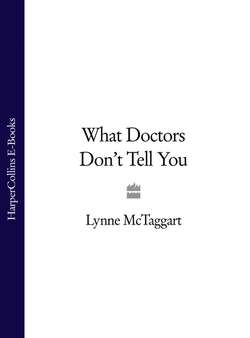Читать книгу What Doctors Don’t Tell You - Lynne McTaggart, Lynne McTaggart - Страница 31
AFP Test
ОглавлениеBefore you go in for amnio or CVS, you’re likely to have, as I did, an AFP test or a ‘triple test’, developed by the University of Leeds to replace advancing maternal age as the only risk factor for giving birth to a Down’s syndrome baby.
AFP stands for alpha-fetoprotein (AFP), a protein produced by the foetal liver. If the baby has a spinal abnormality such as spina bifida or anencephaly, where the full brain is not developed, larger amounts of AFP than normal will be present in the amniotic fluid and the mother’s blood. Low levels of AFP are considered a possible indicator of a baby with Down’s syndrome. The test is given between a woman’s 16th and 20th week of pregnancy.
There is no doubt that the batting average on the alpha-fetoprotein tests is appalling. After my own experience, I heard of at least three friends or acquaintances with false-positive AFP readings. Doctors accept there is a 3–4 per cent error rate of abnormally high readings on first screening, according to writer Helen Klein Ross. ‘This means that of every 2,000 women tested,’ she says, ‘100 will have an abnormal reading, but only 1 or 2 will be carrying a foetus with this congenital defect.’49
Even this estimate of inaccuracy could be conservative. One study done in 1982 estimated a failure rate of 20 per cent.50 As with many biological processes, AFP readings can change from day to day or be falsely elevated, depending on many factors: multiple pregnancies, viral hepatitis, smoking, a threatened miscarriage or even carrying a boy all can produce a false-positive, and being overweight, having insulin-dependent diabetes or just being wrong about your date of conception can produce an artificially low score51 (some 25 per cent of all inaccurately high AFP results are due to inaccuracies about dates or a multiple pregnancy52). Certain races, notably Asian and black women, also seem to produce abnormally high AFP scores.53 According to the late Dr Robert Mendelsohn, one of the first to call attention to the problems of this test in his American newsletter The People’s Doctor, the test has false-negatives too, as evidenced in an article in The Lancet concerning two babies born with spinal defects whose mothers nevertheless had normal AFP readings.54
According to Helen Ross, the AFP test ‘misses about 40 per cent of spina bifida cases, 10 per cent of anencephaly cases, and 80 per cent of foetuses with Down’s syndrome. All of which makes a negative result by no means reassuring.’55
Twins or a miscalculation about the date of conception are two common ways that test results are thrown off. In my case, we were sure about the dates, but my daughter Caitlin turned out to be a full 10-month pregnancy, born 28 days past her estimated due date (first babies who are not induced are very often late, and my obstetrician doesn’t induce labour if there is no evidence that anything is awry). As a slow grower, she probably deviated sufficiently from the norm to show up as ‘abnormal’.
In other words, mostly what this test produces is a good deal of needless anxiety, which can only be dispelled by subjecting your baby to amniocentesis or ultrasound, two procedures with their own potential risks. Indeed, for anyone younger than about 39, the risk of losing a healthy baby through amniocentesis (about 1 in 100) may be greater than the risk of having a baby with Down’s syndrome – if indeed age has anything to do with it.
